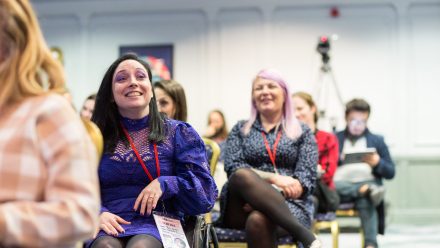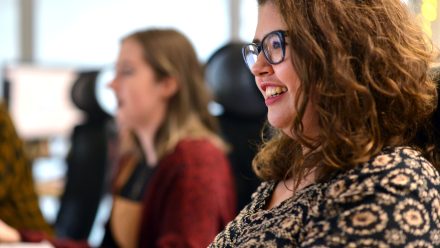How are you making the most of Neurodiversity Celebration Week?
13th March 2023 by Ellie Thompson
Today heralds the start of this year’s Neurodiversity Celebration Week! As an organisation that spends all day, every day, supporting and celebrating neurodiversity, we’re excited to be taking part in a week highlighting the diversity in neurodiversity and making space to highlight the power of diversity of thought.
What can you do, as an organisation or an individual, to make sure you’re making the most of Neurodiversity Celebration Week?

1. Join as many of the Neurodiversity Celebration Week free events as you can!
There are 24 free virtual events taking place over the course of next week, so make sure you sign up to make the most of the opportunity to learn, share and join the conversations.
D&A are excited to be hosting a panel exploring Culture, Class and Community in Neurodiversity with a wonderful group of panelists, so make sure to register to join us for that.
2. Consider how you can embrace and welcome diversity of thought
We love shouting from the rooftops about the benefits of diversity of thought.
We recently joined AchieveAbility for the third edition of their E-journal, Neurodiverse Voices: Calling for change from intersectional perspectives. You can also read up on some wonderful blog contributions that celebrate neurodiversity:
“That concept of needing to work that little bit harder has followed me through adulthood. It is common to hear such a sentiment amongst women. But now that I have entered an environment that celebrates difference, my entire belief in myself and my capabilities has been flipped on its head.” – What happened to my disability? Navigating neurodiversity as a woman
“In February 2020 I was invited to speak at the parliamentary launch of Destination Unknown: improving transitions for care leavers and young people with SEND. This important report recognising how care leavers and young people with SEND can struggle to achieve positive longer-term outcomes likely went under the radar as COVID-19 superseded it. At the age of 38, it was the first time I had spoken openly about the intersection of my care experience and neurodiversity.” – A hidden intersectionality: care experience, disability and neurodiversity
“Historically, disclosing neurodiversity in the workplace has been wrought with risk, with many of us facing bias, ableism and other forms of discrimination. However, it is becoming increasingly evident that a diverse workplace is a more successful workplace; there is not only an ethical, legal and moral argument for making an organisation accessible to neurodiverse and disabled people, but a business case for doing so.” – Benefits of disclosing neurodiversity in the workplace
“As a brown man with dyslexia, I grew up thinking anything I thought that was different to my class friends was probably wrong. Rarely did I ever recognise it as an innovation or something that needed perspective. For me, struggling to fit in with a different language and culture was enough to contend with, but different skin colour was non-maskable for a child that wanted to fit in”. – Where are the BAME dyslexic role models?
3. Investigate how your brain works best
Assistive Technology isn’t just for people with a diagnosis; there is a piece of Assistive Technology out there for everyone.
Explore our free resources and reviews to see if you can find a piece of Assistive Technology that enhances your work, study or life!


